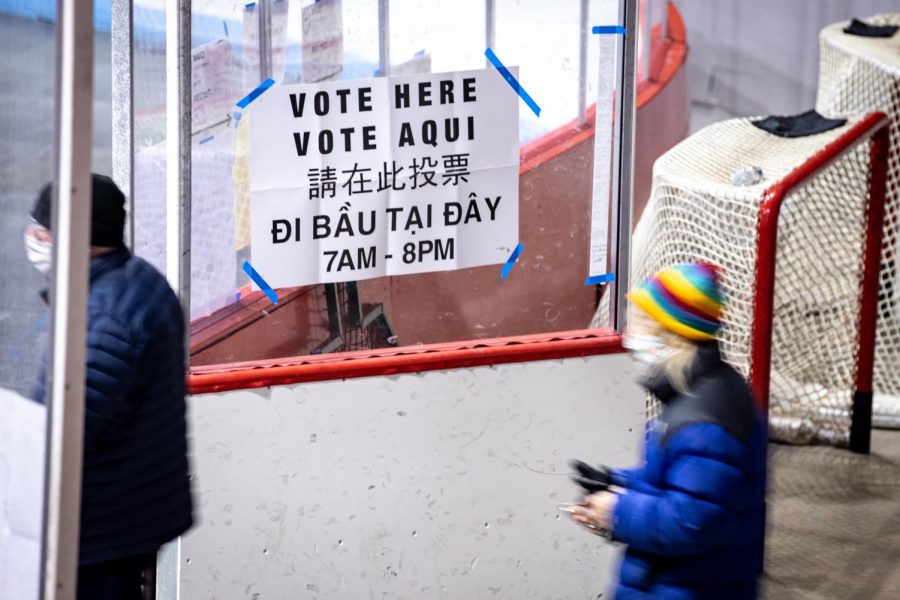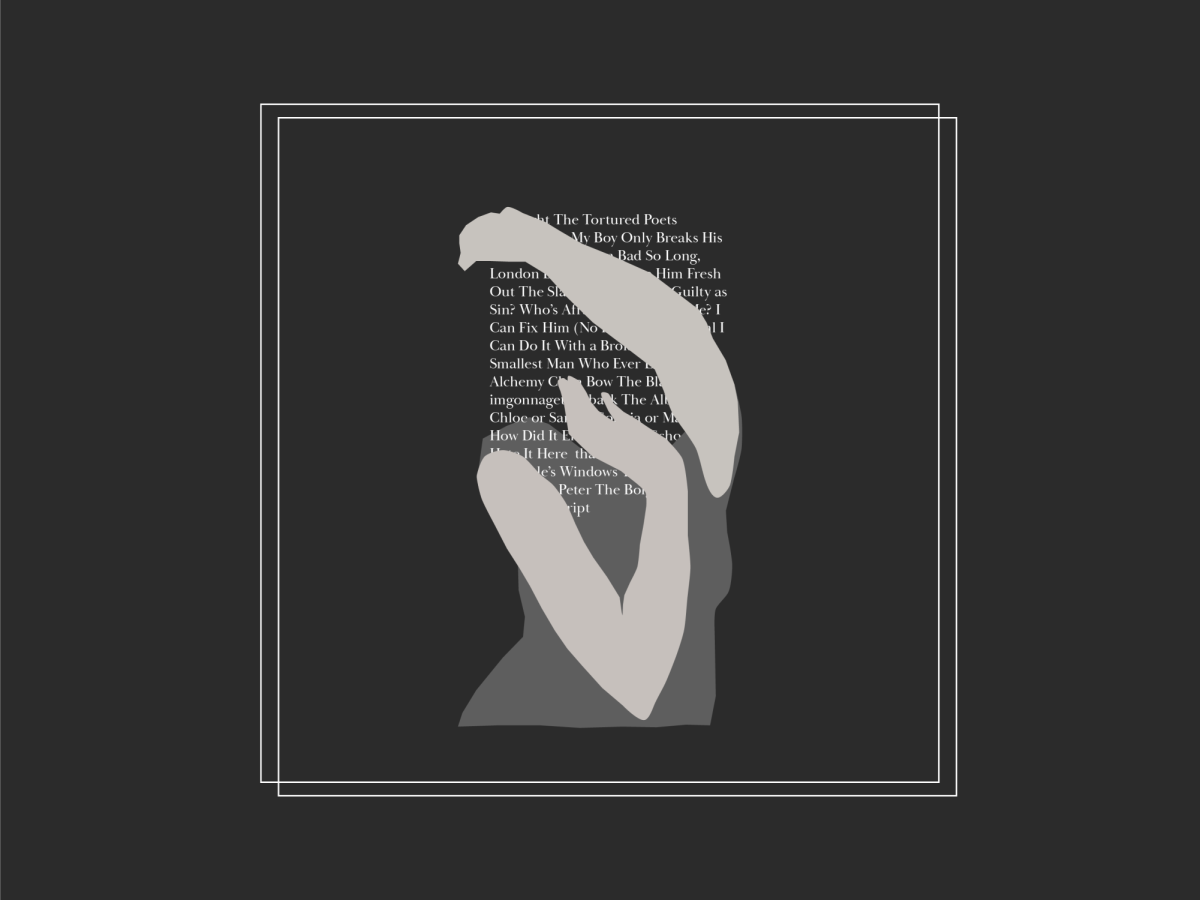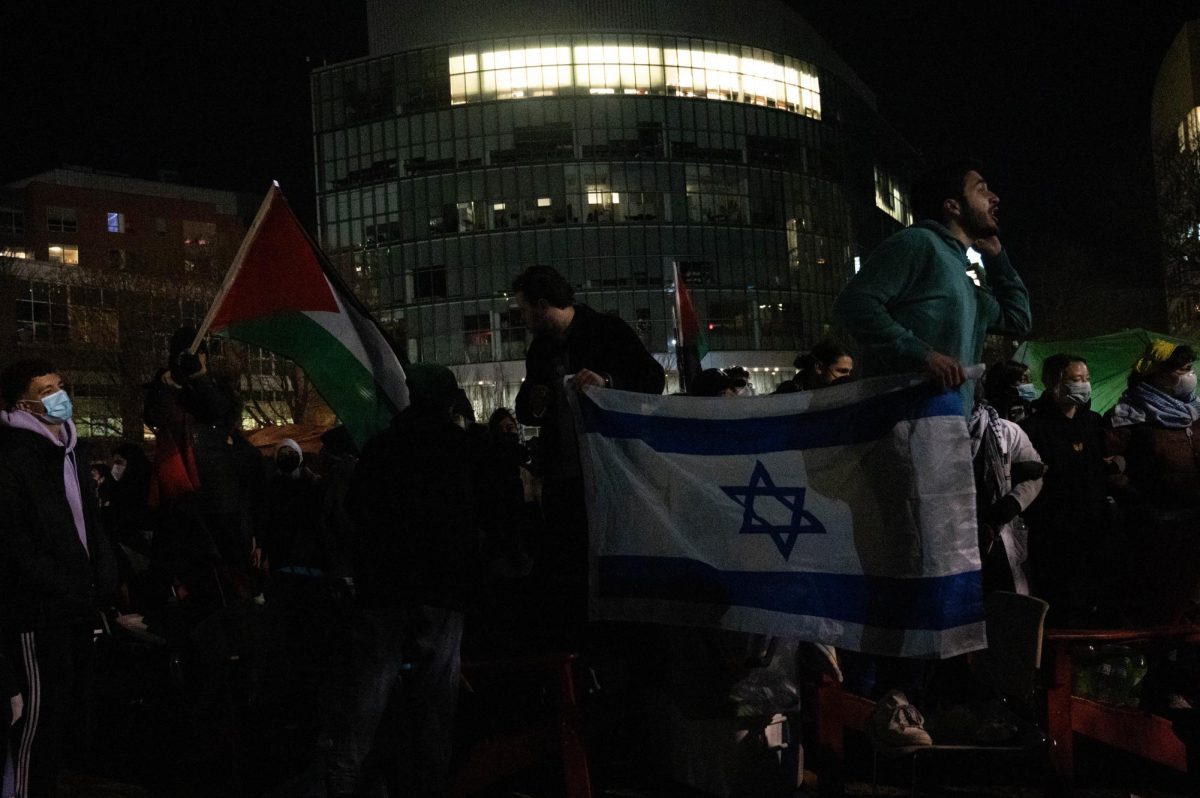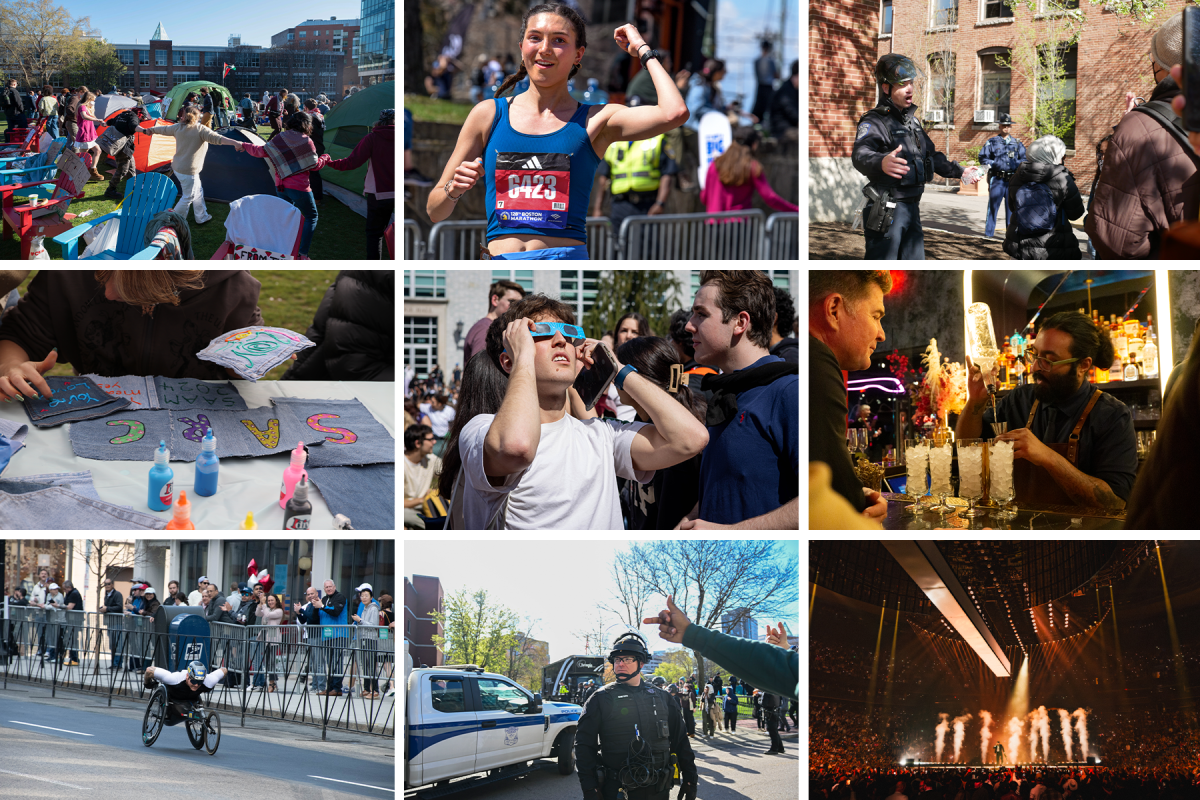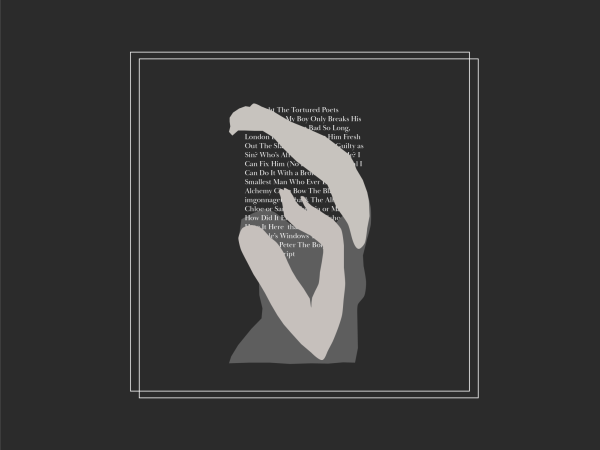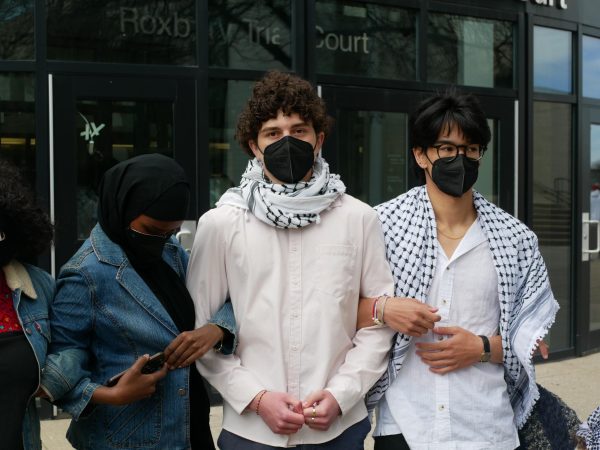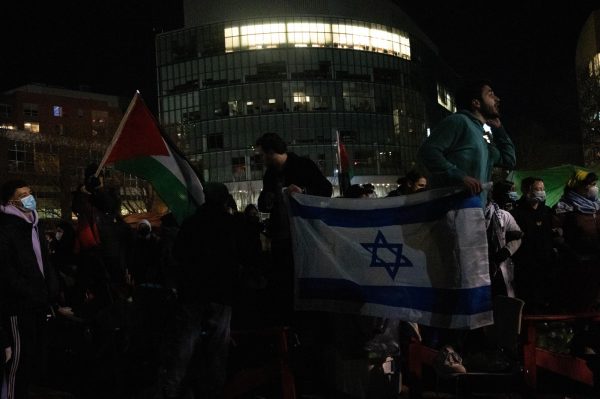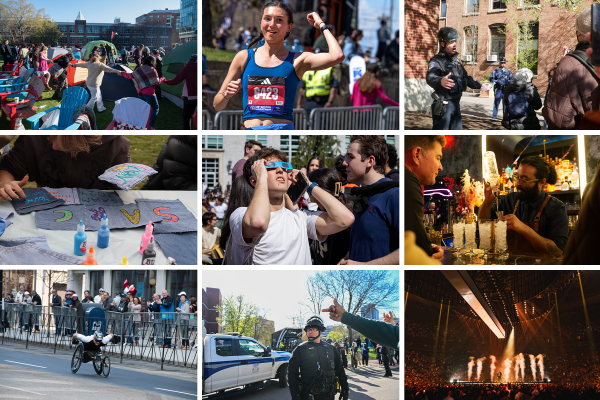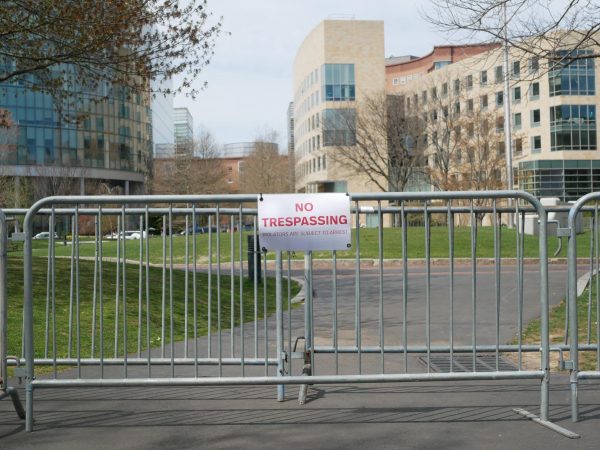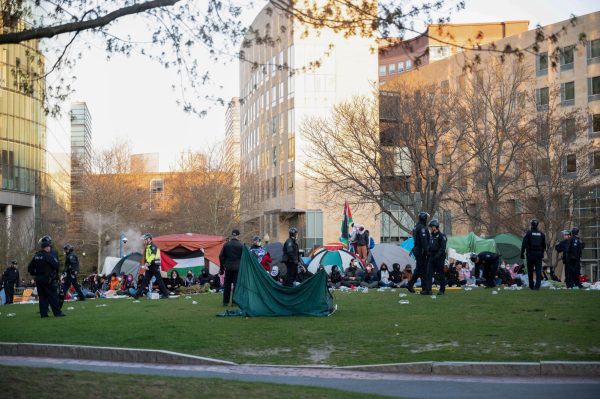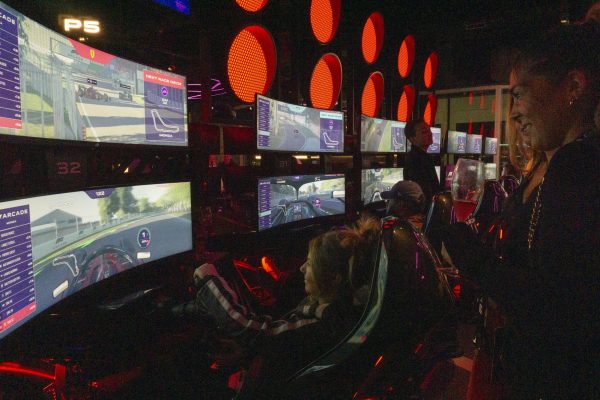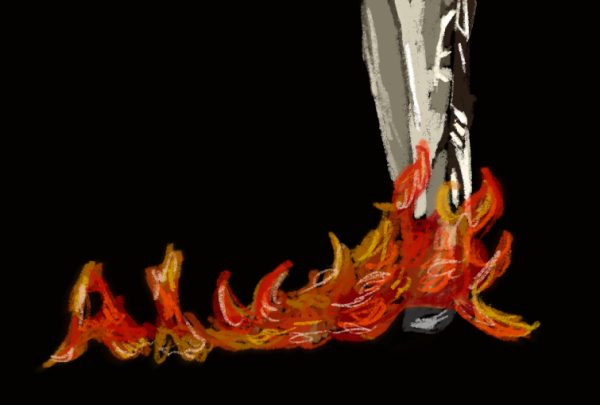Weighing COVID-19 risks, students traveled home to vote
Northeastern community members wait in line to vote at Matthews Arena on Election Day.
November 8, 2020
At 2 a.m. Nov. 2, Julie Dobkin got in her car and drove through the night to go vote. Two of her roommates, who had each already voted, packed snacks and decided to ride with her. By 6:30 a.m they arrived at Dobkin’s polling place in Bucks County — where President Trump lost by just 0.8 percent in 2016, and Joe Biden has now won by 4 percent. She stood in line for two hours at her childhood elementary school, cast her ballot for Biden and by 8:45 a.m. they were headed back to Boston.
“We’ve been listening to early 2000s throwback playlists pretty much the entire time,” she said, about two hours into their return.
Dobkin, a fifth-year cell and molecular biology major, requested her absentee ballot twice in September, but it never arrived. She emailed local election officials, then called, and each time was promised that the ballot was on its way. But by the time Halloween weekend rolled around, she realized the only way to vote was to request a provisional ballot in person.
Dobkin is just one of several Northeastern students who traveled by plane, train, bus, car or boat to cast a ballot — all while the United States continues to report a third wave of record-high COVID-19 cases. Some made the trek home because their absentee ballot never arrived. Others feared their vote would get stuck in the mail system or disqualified by signature matching rules.
Morgan Niezgoda, a fourth-year business administration major, said she put off the decision to travel as long as she could. Voting was important to her, but so was preventing the spread of COVID-19. But when her absentee ballot hadn’t arrived by Oct. 29, she booked a plane ticket home to Dallas Nov. 1.
“With [COVID-19], it’s a balancing act because you want to be responsible, but you also want to be responsible [by voting],” she said.
Niezgoda was surprised to see her flight was so full. But she took the precautions she could: She had a COVID-19 test on campus the day before she left, wore a mask and gloves to her polling location and distanced herself from her mom, even when they were in the house.
“It is stressful,” she said. “We keep our distance. We haven’t hugged or anything.”
Niezgoda voted for Biden, and said close polls in Texas influenced her decision.
“I know Texas did break records for early voters and they’re saying it could be a toss-up, so I’m like ‘OK, every vote really counts here. I need to get my ass home and figure this out,’” she said.
Social media pressure to vote also was a factor.
“On social media you’re bombarded with it — ‘Go vote! Go vote!’” she said. “If I didn’t get down here to vote, I would just feel like such a hypocrite.”
Meanwhile, Michelle Freeman, a first-year bioengineering major, received and returned her absentee ballot to her hometown in New Hampshire, but then canceled it so she would be allowed to be a poll worker. Her absentee ballot stated she would not be present in the town on Election Day, which would disqualify her from working at the polls. She first volunteered as a poll worker during the primary election in February, and knew for months that she wanted to return in November.
Freeman took the MBTA to South Station, then an hour-and-a-half bus ride north. She missed a group presentation in her cornerstone of engineering class on Election Day.
“I would’ve appreciated it if Northeastern made Election Day a holiday,” she said.
Alexander Langrock, a fourth-year computer science and computer engineering major, traveled because he doubted his absentee ballot would be counted. He first took an Amtrak train to Bridgeport, Connecticut, and then a ferry to Long Island. He attended a logic and computation class remotely while on the train, and missed a class while he waited in line to vote.
“I was kind of worried by the mail system, so I didn’t want to risk casting a ballot that would be thrown out,” he said.
Because he assumed Biden would win New York by a wide margin, Langrock said he was more worried about his vote counting in down-ballot races — specifically for the House of Representatives, where his district had a Republican incumbent. This was his first time voting, after skipping the 2018 midterm.
“I could’ve and should’ve voted in 2018, but I didn’t,” he said. “It just didn’t seem that important to me before.”
One motivating issue this year was Justice Amy Coney Barrett’s recent nomination to the Supreme Court, and her lack of support for LGBTQ+ rights. Langrock identifies as gay, and said, “It almost feels like my life is on the line.”
Several students described the journey to vote as both a burden and a privilege: grateful they could afford a ticket and make the time, but angry that they had to.
“I just think about all of the people that didn’t get their absentee ballot, and they don’t have the option to fly home or drive home or get a bus,” Niezgoda said. “That’s just the voter suppression that we’re dealing with right now. I did everything in power to not have my vote be suppressed, but that’s just the situation that I’m in.”


